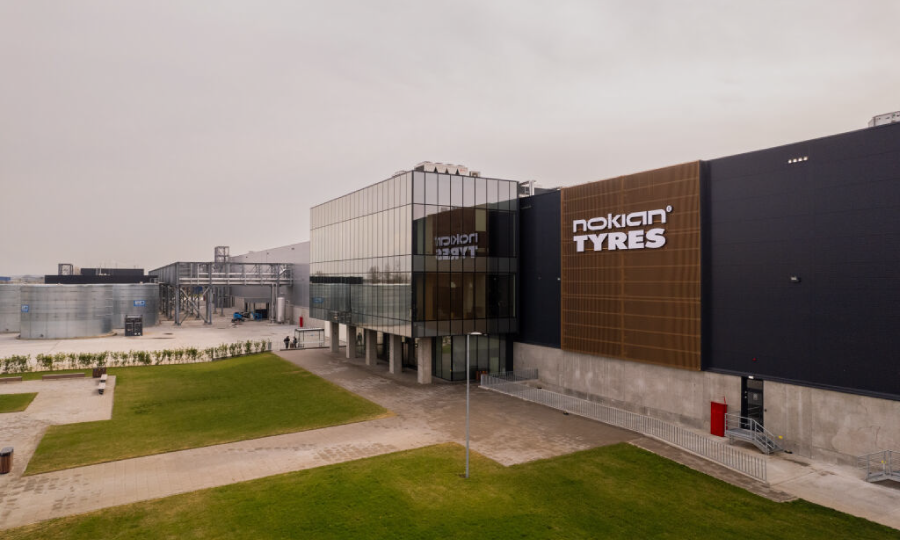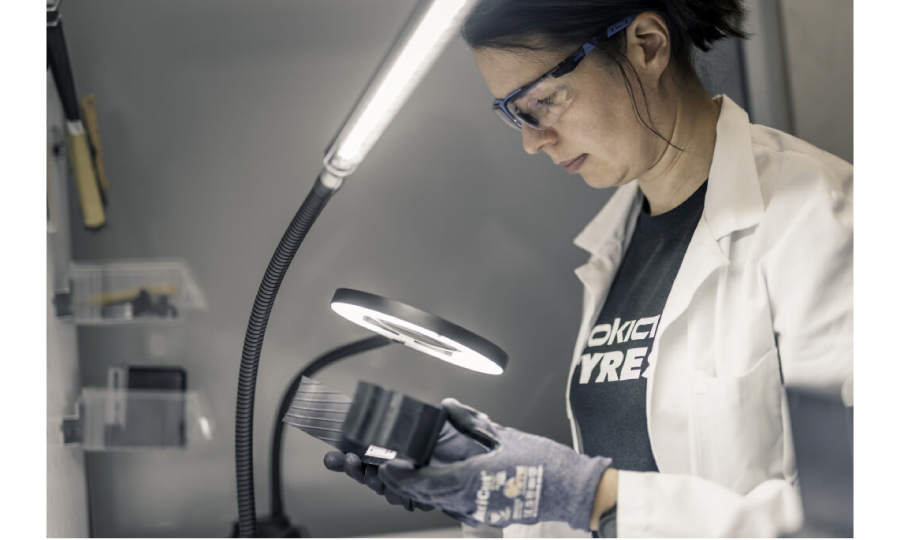
Nokian Tyres has shared exclusive insights with Tyre News Media on how it is embedding sustainability into its core operations, not just as brand positioning, but as a measurable part of tyre performance, factory efficiency, and supplier validation.The Nokian Tyres President and CEO Paolo Pompei together with the company’s sustainability and R&D experts explained how environmental goals are driving decisions from compound engineering to OEM collaboration.

Nokian Tyres CEO Paolo Pompei told Tyre News Media that in 2024, Nokian Tyres opened what it calls the world’s first full-scale zero CO₂ emission tyre factory, located in Oradea, Romania. The new facility is part of a broader plan to lead the industry in low-emission production,
He continued by saying that Nokian Tyres has an ambiguous target to increase the use of recycled and renewable raw materials in tyres to 50% by 2030
Below typical tyre industry figures
Nokian Tyres VP, Quality and Sustainability Teppo Huovila confirmed to Tyre News Media that Nokian Tyres’ global Scope 1 and 2 emissions averaged just 153 kg CO₂ per product ton in 2024, a level significantly below typical tyre industry figures. The Oradea factory, alongside its ISCC PLUS certification, will play a central role in reducing this further as production ramps up.
The company has also invested in renewable energy across several sites. Its Dayton plant in the US was the first tyre factory in the world to achieve LEED v4 Silver certification.

Engineering sustainability into the tread
Nokian Tyres’ Vice President of Innovations & Development, Teemu Soini, highlighted that ESG principles are now integrated into product development from the outset. This includes selecting raw materials based on emissions impact and circularity potential.
A clear example is the Nokian Tyres Seasonproof 2, which uses up to 38% renewable, recycled and ISCC PLUS certified materials — without compromising safety. The tyre’s compound was developed to maintain wet grip across a wide temperature range, replacing fossil-based elements with renewables.
“We don’t see environmental targets as something separate from performance,” he continues. “They are inseparable parts of the same development process.”
OEM and fleet expectations rising
In commercial and fleet channels, Nokian Tyres sees growing demand for traceable, low-emission products, particularly in the EV segment. Larger B2B customers increasingly expect suppliers to back sustainability claims with verifiable action, from tyre design to factory emissions.
While these expectations are strongest in Europe, the company told Tyre News Media that sustainability is gaining importance across all its markets — including Central and Southern Europe, the Nordics, and North America.
Transparent sourcing and supplier audits
Nokian Tyres has implemented a multi-criteria classification system to assess and monitor suppliers, particularly for high-impact materials like natural rubber and reinforcements. Suppliers identified as high-risk undergo third-party sustainability audits, a practice Nokian Tyres has maintained since 2016.
The company acknowledged that upcoming European Deforestation Regulation (EUDR) requirements will add further scrutiny to the natural rubber supply chain, and said it is preparing accordingly.

Digital tools in manufacturing
While advanced tools like simulation and AI are used across the business, the company noted that emissions reduction is often driven by process choices rather than high-tech interventions alone. That said, traceability and quality control remain key focus areas in digital transformation.
Nokian Tyres’ ESG roadmap offers a concrete example of how sustainability is evolving from a marketing message to a product and operations mandate. With Europe's policy and fleet environments pushing for traceability, decarbonisation, and material innovation, suppliers like Nokian Tyres that can demonstrate real progress, such as a zero CO2emission plant or a up to 38% sustainable-material tyre, are well positioned to meet both regulatory and customer expectations. This shift is particularly relevant for EV tyre development, where safety, emissions, and lifecycle sourcing must align.
Tagged with: sustainable tyre manufacturing, ESG tyres, EV tyres, tyre factory emissions, Oradea tyre plant, tyre supply chain transparency, Nokian Tyres, ISCC PLUS, EUDR, OEM fleet tyres
Disclaimer: This content may include forward-looking statements. Views expressed are not verified or endorsed by Tyre News Media.












Sign up for our weekly briefing on key developments across the sector.